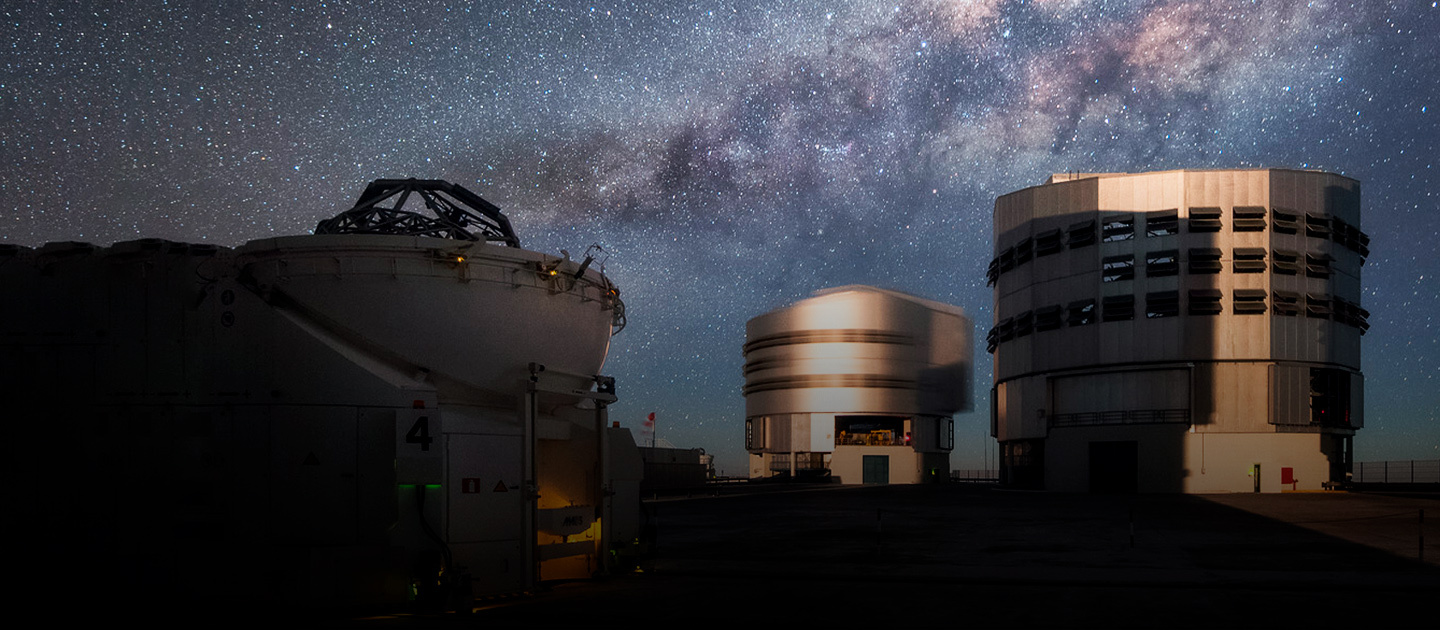
UC Chile Joins the Major Leagues of World Science
04 November 2024
The efforts of UC Chile’s researchers have transcended national borders, reaching the global scientific stage through international partnerships and alliances, facilitated by the Chilean National Research and Development Agency (ANID). UC Chile currently collaborates with prominent institutions, including CERN, the European Molecular Biology Organization (EMBO), and the European Southern Observatory (ESO). These partnerships drive significant progress in particle physics, molecular biology, and astronomy. In this article, UC Chile’s researchers share their insights on the impact of participating in these scientific "major leagues."
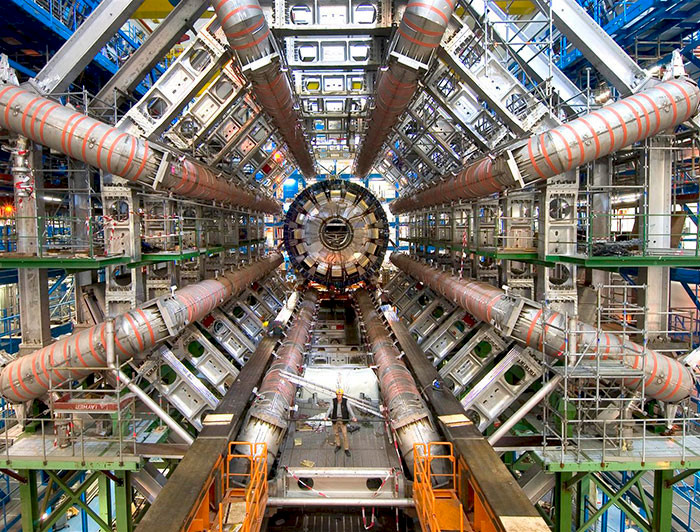
photo_camera Through agreements with ANID and prominent global scientific organizations, Chilean scientists gain access to top-tier infrastructure and groundbreaking projects, helping to drive the advancement of scientific development in Chile. (Photo: Large Hadron Collider, CERN)
UC Chile researchers, including Francisca Garay, Marco Aurelio Díaz, Giovanna Cottin, Rodrigo Gutiérrez, César Ramírez, María Isabel Yuseff, and Gaspar Galaz, are making an international impact in fields like astronomy, particle physics, and molecular biology.
Their achievements are supported by collaboration agreements established by Chilean National Research and Development Agency (ANID) with organizations like the European Southern Observatory (ESO), the European Organization for Particle Physics Research (CERN), and the European Molecular Biology Organization (EMBO).
These partnerships offer Chilean researchers access to advanced facilities and projects, fueling the nation's scientific advancement.
Pedro Bouchon, UC Chile's Vice President for Research, highlighted the university's global scientific leadership: "We continue to lead both in Chile and abroad." This progress, he explained, is a result of strategic alliances and the active involvement of UC Chile faculty in international research projects and collaboration agreements that promote research and education.
María Elena Boisier, Director of Research, emphasized, "This is an achievement we should celebrate and continue to foster, especially as more women join the frontlines of global science at institutions like CERN, EMBO, and ESO. The Office of Research, with support from our International Sub-Office, plays a vital role in facilitating these connections and ensuring our researchers’ continued international progress."
Access to World-Class Scientific Experiments at CERN
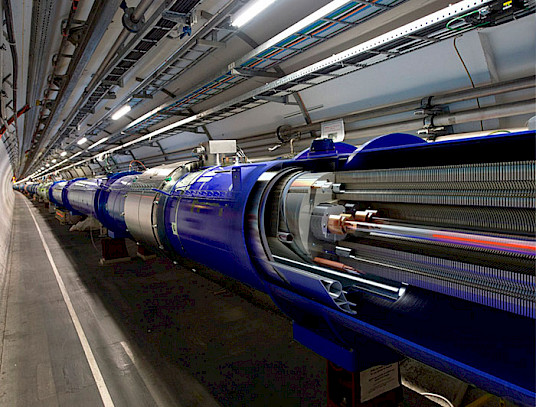
CERN, the world's largest particle physics laboratory, is renowned for groundbreaking discoveries like the Higgs Boson, which has profoundly expanded our understanding of the universe. UC Chile is playing a key role in Chile's current bid for associate membership at CERN. This past March, a CERN delegation visited UC Chile's Faculty of Physics to further these discussions.
UC Chile also participates in the Millennium Institute for Subatomic Physics at the High-Energy Frontier (SAPHIR), which strengthens Chile’s subatomic physics research in collaboration with CERN, focusing on the mysteries within the universe’s smallest particles.
"Being part of CERN is essential for accessing advanced experiments like ATLAS, one of the four detectors at CERN's Large Hadron Collider (LHC) in Switzerland. It also enables international collaboration and the use of advanced data analysis technologies like Big Data and Machine Learning," explained Francisca Garay, professor at the Institute of Physics and deputy director of SAPHIR.
Currently, she participates in both the ATLAS experiment and CERN’s Compact Linear Collider (CLIC), a linear collider operating at lower energies than ATLAS. “This collaboration can also impact other areas of UC Chile, facilitating knowledge and technology transfer to fields like medicine and computer science.”

Chile’s involvement in CERN has also spurred the production of small-strip Thin Gap Chambers (sTGC) detectors, which enhance ATLAS experiment accuracy in detecting muons, a critical component in high-energy particle research. UC Chile collaborated with Universidad Federico Santa María on this project, supported by SAPHIR.
Giovanna Cottin, a professor and researcher at the Institute of Physics and a prominent particle physicist, has made significant contributions to CERN's work. As a member of SAPHIR, she has been actively involved in the ATLAS experiment, advancing particle physics research from Chile alongside her colleagues.
Similarly, Marco Aurelio Díaz, a professor and researcher at the Institute of Physics, ATLAS collaborator, and SAPHIR member, highlighted the importance of Chile's potential associate membership in CERN. "This would be a significant step forward for the country, opening doors for Chilean industry to participate and fostering its growth".
He added that this opportunity could substantially increase the involvement of Chilean students, technicians, and engineers at CERN, benefiting fields beyond physics, such as computer science, electrical engineering, mechanics, and medical physics, which also contribute to ongoing CERN experiments.
Molecular Biology Research at UC Chile: Innovations in Health Applications

The European Molecular Biology Organization (EMBO), an organization of over 1,900 esteemed scientists, including Nobel Laureates, promotes research excellence in the life sciences. Although primarily European, EMBO extended associate membership to Chile in 2017 through an agreement with ANID, making Chile the only Latin American country with this distinction.
To foster interaction between the organization and the local research community, EMBO visited UC Chile last June. EMBO Director Fiona Watt presented the funding opportunities available to researchers in Chile. This visit was part of ongoing efforts to strengthen cooperative ties with Chile, in collaboration with the Ministry of Science, Technology, Knowledge, and Innovation and ANID.
On July 9, EMBO announced the addition of 20 associate members to its scientific community, a category granted to scientists with an established career. Among them are three Chileans, with Professor Rodrigo Gutiérrez, from the Faculty of Biological Sciences, being the only representative from UC Chile.
He joins other UC Chile faculty members previously recognized by EMBO as 'global investigators,' including César Ramírez, a professor at the Institute of Biological and Medical Engineering, who joined the organization in 2023, and María Isabel Yuseff, a professor in the Faculty of Biological Sciences, who became a member in 2020.
Gutiérrez is renowned for his groundbreaking work in systems biology, particularly in plant genomics and bioinformatics. Over the past decade, his research on wild plant species in the Atacama Desert has also earned international acclaim. "EMBO's partnership with Chile recognizes the excellence of researchers in our country," he explained.
"UC Chile, alongside institutions like the University of Chile and the University of Santiago, plays a leading role in national research due to the exceptional quality of its scientists," said Gutiérrez. "This recognition is not linked to any single project or discovery; rather, it reflects the high standards of research across various fields."
Joining this "major league" provides four years of funding for training and developing research networks. These resources allow researchers to visit other institutions, build collaborations, learn new techniques, conduct experiments, attend or organize scientific meetings, and receive EMBO training in leadership and management.

EMBO has allowed María Isabel Yuseff to attend high-impact conferences, co-author publications, and elevate her research in cell biology and immunology internationally.
Also, César Ramírez, associate professor at UC Chile’s Institute of Biological and Medical Engineering, is the third UC Chile researcher recognized by EMBO. His research includes the discovery of Antarctic enzymes that degrade plastics at room temperature and new insights into protein-regulated bacterial behaviors.
Chile: A Global Hub for Astronomy and Scientific Discovery
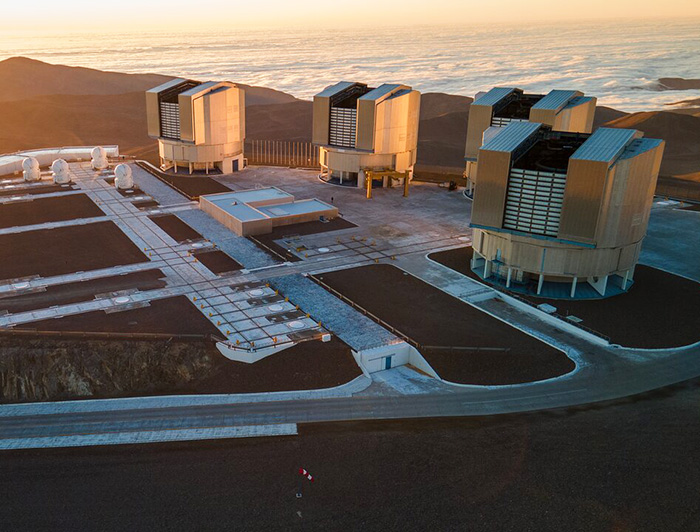
The European Southern Observatory (ESO), the principal intergovernmental organization for astronomy in Europe and the Southern Hemisphere, operates state-of-the-art telescopes in Chile, playing an essential role in expanding our understanding of the universe.
Gaspar Galaz, professor at UC Chile's Institute of Astrophysics and member of the ESO Chile Committee, explained that Chile and ESO have partnered since the 1960s, with a revised 1995 agreement that supports Chilean astronomy. Through competitive selection, Chilean astronomers can access up to 10% of ESO's telescope time, and ESO provides approximately $500,000 USD (around 500 million Chilean pesos) annually for Chilean astronomy, training, and outreach. These funds are allocated by a joint committee of Chilean and ESO astronomers.
"The ESO agreement is unique compared to CERN and EMBO," noted Galaz. "Chile has been indispensable to ESO since its inception, and this collaboration has been a cornerstone for Chilean astronomy’s growth."
Founded in 1962, ESO established its first observatory in Chile at La Silla. For ESO, Chile remains indispensable, and the 1995 agreement has been a cornerstone of the nation’s astronomical development." Currently on sabbatical at the observatory, Galaz emphasized the vital role this partnership has played in advancing Chilean astronomy.
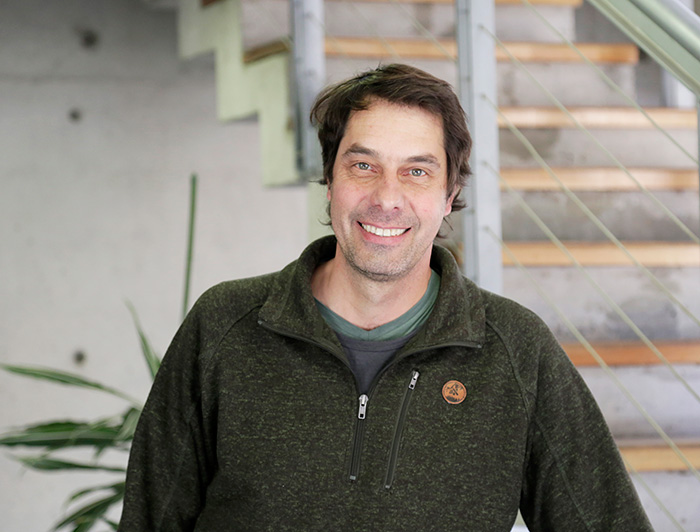
ESO has played a vital role in supporting educational outreach and strengthening research infrastructure in Chile, including a notable $500,000 donation to rebuild UC Chile’s Astrophysics Institute after a fire in 2021.
Professor Galaz emphasized ESO's importance, stating that it is a cornerstone of Chile's astronomical development. "Without ESO, Chilean astronomy would lose a critical component. For many astronomers, including myself, ESO has been essential to our research," he noted.
Vice President for Research Pedro Bouchon underscored the significance of UC Chile’s international partnerships: "These agreements reflect UC Chile’s commitment to academic excellence and its mission to drive scientific and technological advancement in Chile and beyond."




